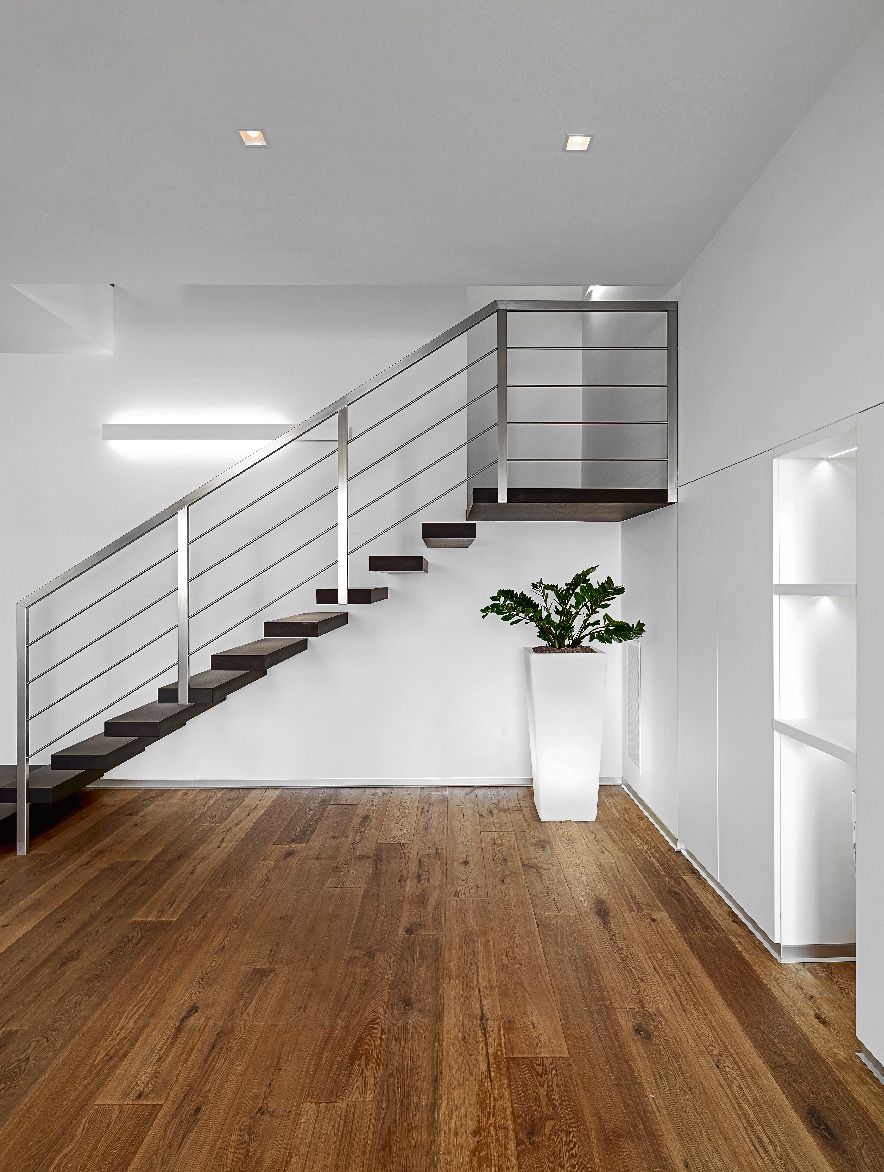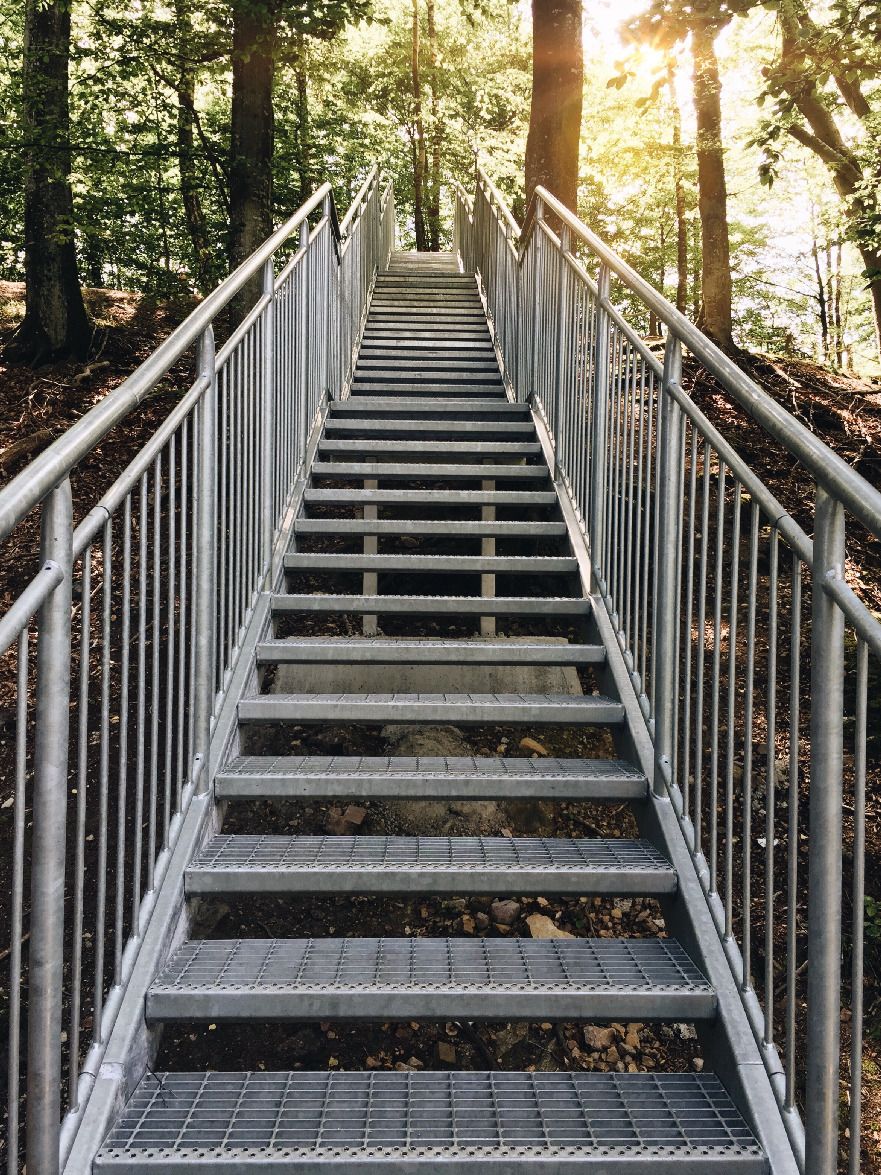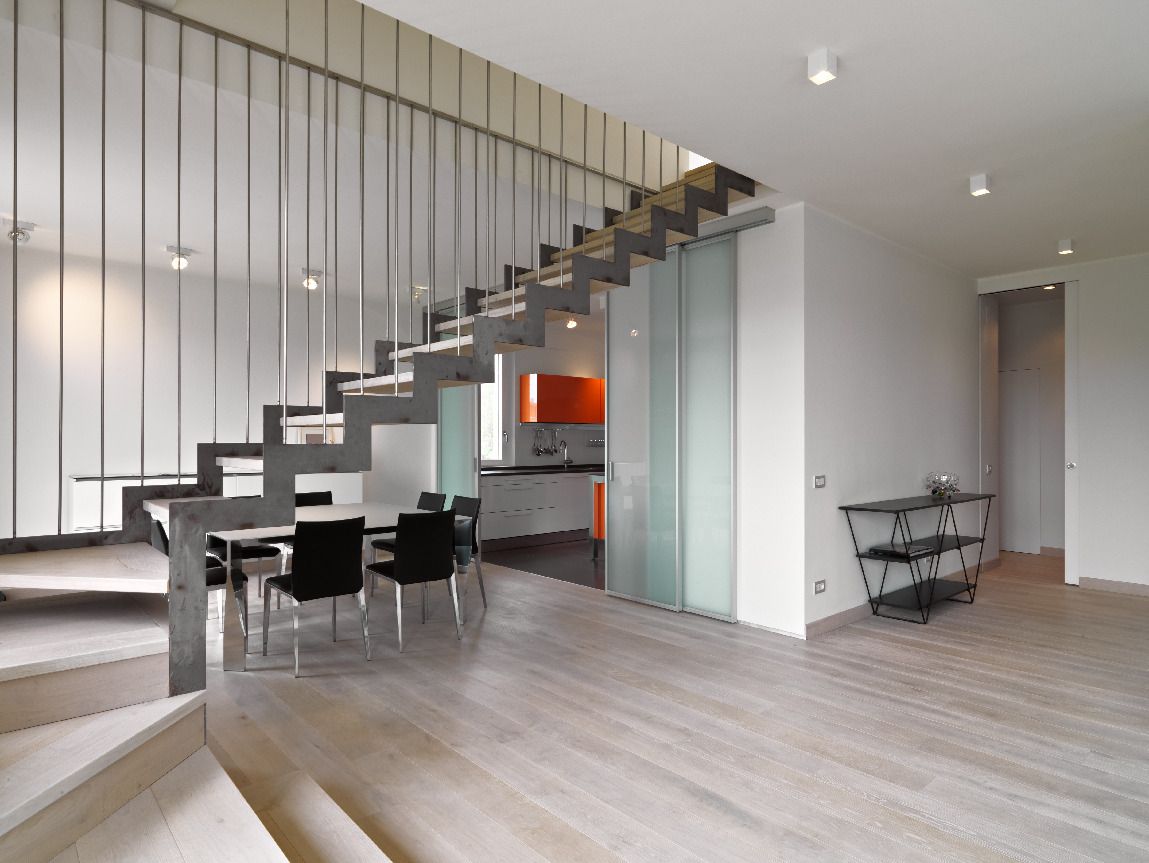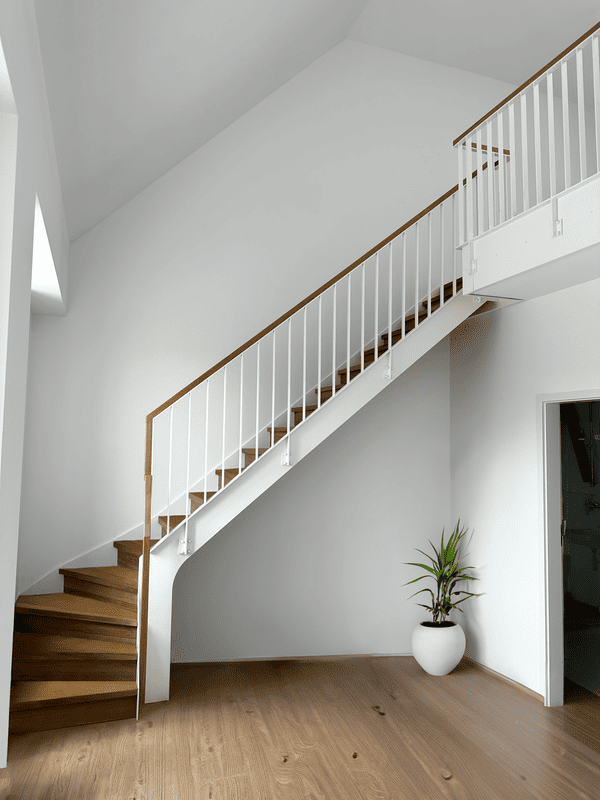A staircase is an integral part of any multi-level building. Staircases are used in various types of facilities, whether in residential, industrial or commercial buildings. Therefore, designing the right staircase for a building is a very important step-especially when it comes to choosing the right materials for it.
When it comes to stairs, the material should be structurally strong, economical and match the overall aesthetics of the building. Considering strength and design, the best materials for stairs are steel and concrete.

What are the differences between concrete and steel stairs?
In this article, we provide a comprehensive look at what each option has to offer.
Resistance and durability of stairs
Both materials are strong and durable, but differ in their qualities depending on how they are used.
Steel is one of the sturdiest, strongest metals that can be used to build stairs. The material has high tensile strength, so they are extremely resistant to heavy loads. Some processes, such as electroplating, increase their resistance to corrosion, making the material even more durable. This makes steel stairs durable even in outdoor environments with extreme weather conditions.
On the other hand, concrete is also a strong and durable material. It has a high compressive strength. However, it does not have a high tensile strength - which means it must be reinforced with rebar to have the same tensile strength as steel. Concrete is also fireproof and absorbs vibrations, so it's great for fire stairwells, stairwells in hospitals and the like.
Versatility of steel stairs
When steel is used, there is a wider range of staircase design possibilities. This is because steel is produced in a variety of shapes and styles, so it can be used to create different types of stairs, from traditional to spiral. When using custom-made steel components, you also have many options for the layout of the staircase, steps and types of handrails.
Concrete can also be used to create a variety of shapes, but using concrete to build stairs poses serious challenges for contractors. Casting stairs out of concrete is time-consuming, and the results are not as accurate as with stairs made from steel elements. So implementing such projects while complying with building codes and specifications can be more time and labor intensive.
Deadline for completion of stairs
In addition to the casting process, contractors also spend a lot of time preparing foundations, formwork and installing reinforcement for concrete stairs. This is a lengthy process - and if the project is on a tight schedule, it can be difficult to complete on time.
On the other hand, steel stairs can be quickly manufactured, delivered and installed. In most cases, this entire process can be much shorter than building concrete stairs. This will allow your team to take care of other aspects of the construction project.

Stair finishing
The process is designed to strengthen the staircase or give it a new look without replacing the structure. Both concrete and steel stairs can be covered with a material of your choice, such as wood, tiles or other metals.
Steel stairs are much easier to build than concrete ones. Because steel is more precise, precise measurements can be taken to match the cladding material. This ensures precise sizing and fabrication of cladding materials, reduces production and installation time, and ensures high quality construction.
In the case of concrete stairs, step and riser templates must be made in order to properly make the cladding material. However, concrete stairs are rarely 100% identical and accurate, making the cladding process much more difficult. In addition, attaching cladding to concrete can be risky, as drilling into the material can compromise the structural integrity of the staircase.
Maintenance of stairs
Both materials are generally easy to maintain. Steel and concrete, whether installed indoors or outdoors, require only regular cleaning. If the steel is coated or galvanized, then it is virtually maintenance-free, as it has a higher resistance to corrosion.
Pressure washers, mops, sponges and mild cleaners and detergents can be used to clean steel and concrete stairs.
Stair construction costs
The total cost of manufacturing and installing steel stairs is less than for concrete stairs. This is due to the fact that steel, in general, is a very economical material for production. In addition, steel stairs, as we have already mentioned, are easier and faster to build than concrete stairs - resulting in lower labor costs. Prefabricated modular elements and sections can also help reduce the overall cost of making steel stairs even further. Concrete stairs require a lot of preparation for construction, including preparing the foundation, formwork, making rebar, etc.

Design
When it comes to design, steel offers more advantages. Not only is it a versatile material for processing, but it is also considered contemporary and modern. This makes it ideal for offices, homes and commercial buildings where aesthetics are an important factor. Other materials, such as wood and stone, can also be easily integrated with steel stairs to provide a custom look.
On the other hand, concrete stairs tend to be more functional than aesthetic. Therefore, they are usually built to fulfill the primary purpose of stairs in outdoor areas. Otherwise, they are placed in hidden parts of the building, such as fire stairwells, basements, and the like, where they are usually out of sight.
Summary
When comparing concrete stairs with steel stairs, the winner is steel stairs. Steel stairs, are the ideal choice when it comes to functionality, aesthetics and budget.
Free valuation of stairs
Whether you are planning to install a steel staircase in your home, office, or other building, be sure to contact a professional - Ske Design! We supply a wide range of high-quality steel products suitable for residential, industrial and commercial applications. Contact our team today for advice on your project or to get a quote!
All posts from category "Stairs"




